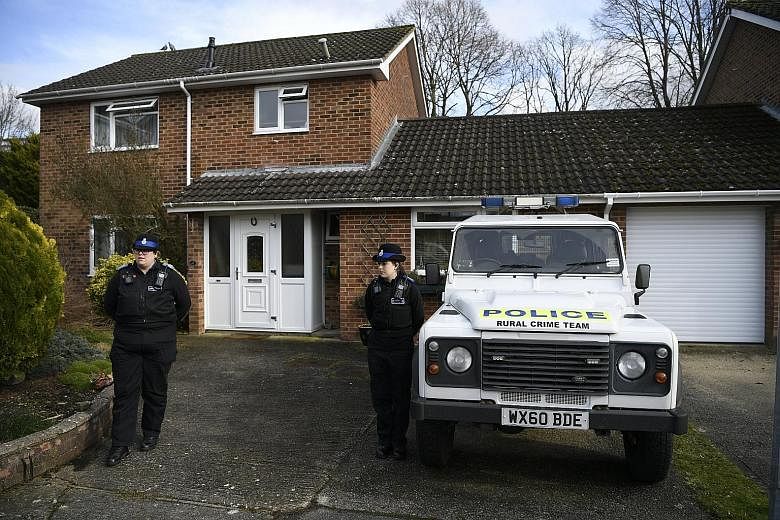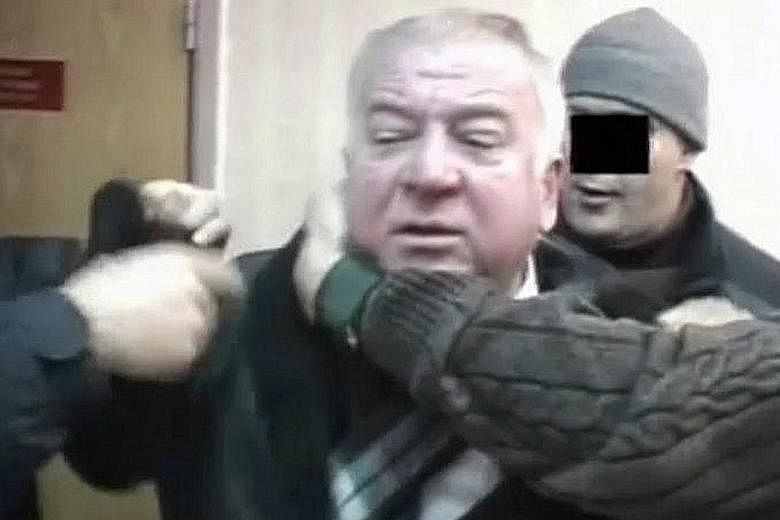LONDON • Britain said yesterday that investigators now know more about a mystery substance that struck down a former Russian double agent and his daughter in an English city, in a case that threatens to further damage already strained ties with Moscow.
After chairing an emergency government meeting to discuss the situation of Mr Sergei Skripal, Interior Minister Amber Rudd said the police were closer to identifying the substance that he was exposed to.
The 66-year-old Russian, who moved to Britain in a 2010 spy swap, is in a critical condition in hospital along with his daughter Yulia after they collapsed on a bench outside a shopping centre in the south-western city of Salisbury on Sunday.
"We do know more about the substance and the police will be making a further statement this afternoon," Ms Rudd said.
The suspected poisoning prompted Foreign Secretary Boris Johnson to say on Tuesday that if Moscow were behind the incident, then Britain could look again at sanctions and take other measures to punish Russia, which he cast as a "malign and disruptive" state.
He noted the "echoes" with the 2006 poisoning in London of former Russian spy and Kremlin critic Alexander Litvinenko, which Britain has blamed on Moscow.
The Kremlin hit back yesterday, with Foreign Ministry spokesman Maria Zakharova telling reporters the story "was straightaway used to boost an anti-Russian campaign in the media".
Police said new cordons had been added near Solstice Park, a business park, in the town of Amesbury, near Salisbury. They have sealed off the area of Salisbury where Mr Skripal was found as well as the Zizzi pizza restaurant where they dined and the Bishop's Mill pub where they had a drink.
Mr Skripal and his 33-year-old daughter had lunch before walking to the shopping centre, where witnesses said they appeared "out of it". Experts said the circumstances appeared to rule out radiation poisoning, as in Mr Litvinenko's case.
Police reportedly took away the table and chairs where Mr Skripal and his daughter were sitting in Zizzi's restaurant for analysis. Some emergency services personnel who treated the pair required medical treatment, and The Sun newspaper reported that two police officers were wheezing and had itchy eyes and rashes.
Newspaper reports speculated on the use of thallium, which dissolves in water and is odourless and tasteless, or the banned VX nerve agent used on the half brother of North Korean leader Kim Jong Un. The BBC reported that without knowing the cause, the hospital treating Mr Skripal and his daughter could only treat their symptoms, citing one source as saying that he "is not in a good way at all".
AGENCE FRANCE-PRESSE, REUTERS


